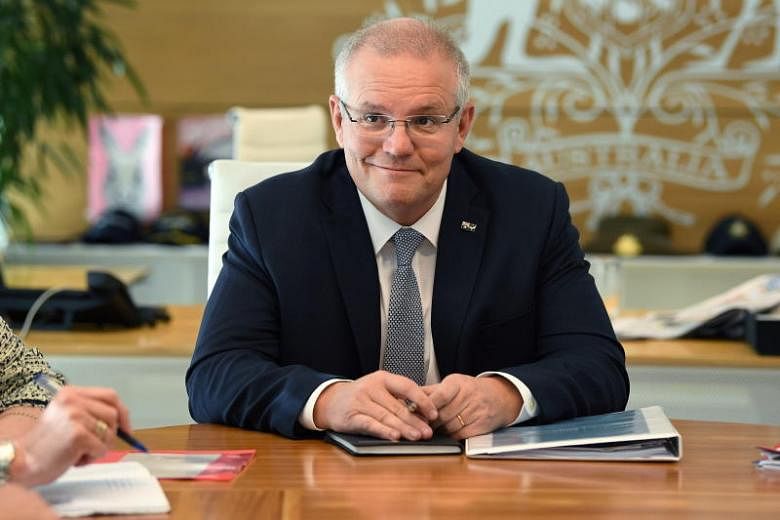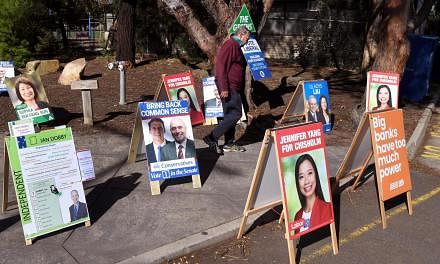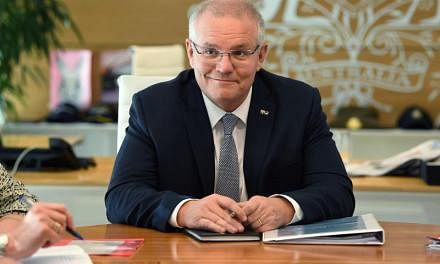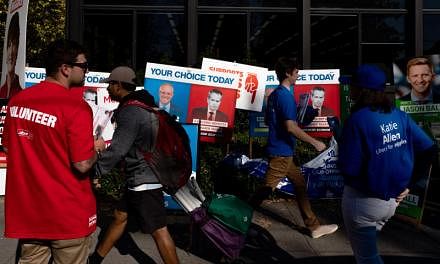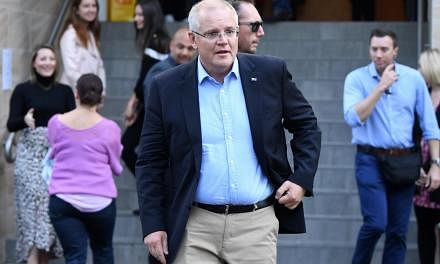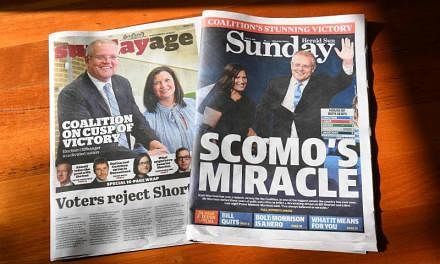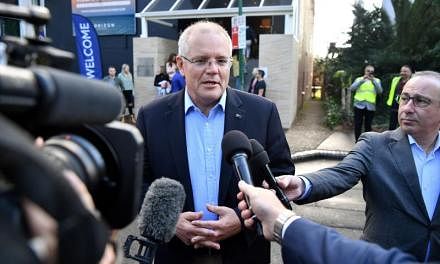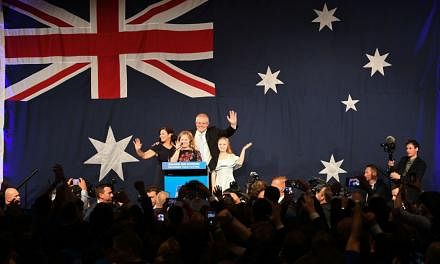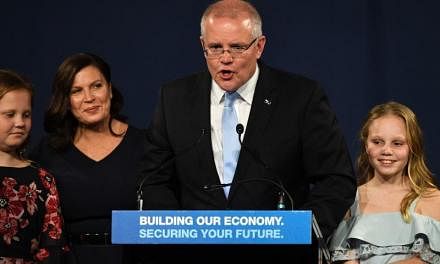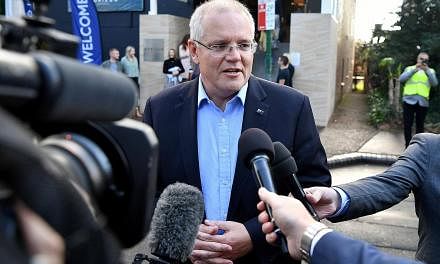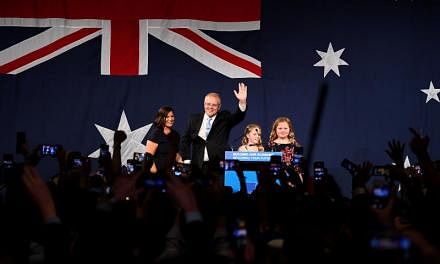SYDNEY - Australia's Prime Minister Scott Morrison is set to secure an outright majority in Parliament following an election victory that stunned the nation and sent the share market soaring to its highest level in 11 years on Monday (May 20).
As counting from Saturday's poll continued, the ruling Liberal-National Coalition was on track to win 77 or 78 of 151 seats in the Lower House, compared with 67 or 68 for Labor, plus five independents and one Green MP.
The Coalition's majority is likely to add to the nation's political stability and ensure that the Coalition will not need to rely on the support of independent MPs, including several who have called for greater action on climate change.
The Government will now be able to pass its 10-year tax cuts unfettered and avoid pressure to adopt a stronger climate policy, though it does not have a majority in the Senate, or Upper House.
Mr Morrison's election victory defied three years of consistent opinion surveys which indicated that the Coalition was destined to lose. Despite his underdog status, Mr Morrison ran a disciplined campaign that focused on the economy and raised concerns about Labor's bold, wide-ranging agenda.
Mr Morrison, a devout Christian who presents himself as an unpretentious hard-working father, said on Monday that he represented "quiet Australians" who wanted the Coalition to lower taxes, improve services and avoid the "politics of division".
"They just want to see us get back to work," he told 2GB Radio.
"They've had their say they've made their decision. Now they expect us to get on with it so they can get on with their lives. That's what the quiet Australia has said and I'm going to honour that."
Mr Morrison will now have to assemble his new Cabinet and will then recall Parliament in June to pass his A$158 billion (S$150 billion) 10-year tax cuts.
These cuts were the centrepiece of his campaign, but he otherwise ran on a relatively unambitious agenda. His campaign focused on attacking Labor's plans to boost taxes for some property investors and retirees and to spend significantly more on health and other services.
Analysts credited the Coalition victory with causing a rapid rise in share prices yesterday, as the stock market had a 1.7 per cent rise, leaving it at its highest level since late 2007. Australia's dollar also increased by about half a cent to 69.2 US cents. The shares of the country's big four banks had increases of 6 to 9 per cent.
Commentators said the impact of a Labor victory had been factored into share prices before the election but this was unwound on Monday. Private health insurers had gains of up to 16 per cent because they will no longer face Labor's proposed cap on insurance premium increases for two years.
Mr Morrison's victory follows a tumultuous era in Australian politics, including the ousting by the Liberal party of Prime Minister Tony Abbott in 2015 and Malcolm Turnbull last year. But the electorate appeared to forgive the Liberal chaos due to concerns that Labor's adventurous agenda was potentially risky.
Some analysts suggested the election showed that the Australian electorate was intrinsically conservative.
"Australians have shown themselves to be cautious about change, susceptible to doubt and to fear," said ABC News commentator Andrew Probyn.
"[Morrison] gambled, correctly, that Australians were a conservative lot who always preferred gradual evolution, not a simultaneous step-change on a number of policy fronts."
Labor leader Bill Shorten announced in his concession speech on Saturday that he will step down, raising questions about the party's direction.
The party's Deputy Leader, Ms Tanya Plibersek, said on Monday that she will not stand for leadership due to family commitments. At this stage, only popular Sydney-based MP Anthony Albanese has announced he will run.
"We have not sold the message well enough… that we are interested in jobs and economic growth as the priority, as well as the distribution of wealth in our society," Mr Albanese told ABC News on Monday night.
